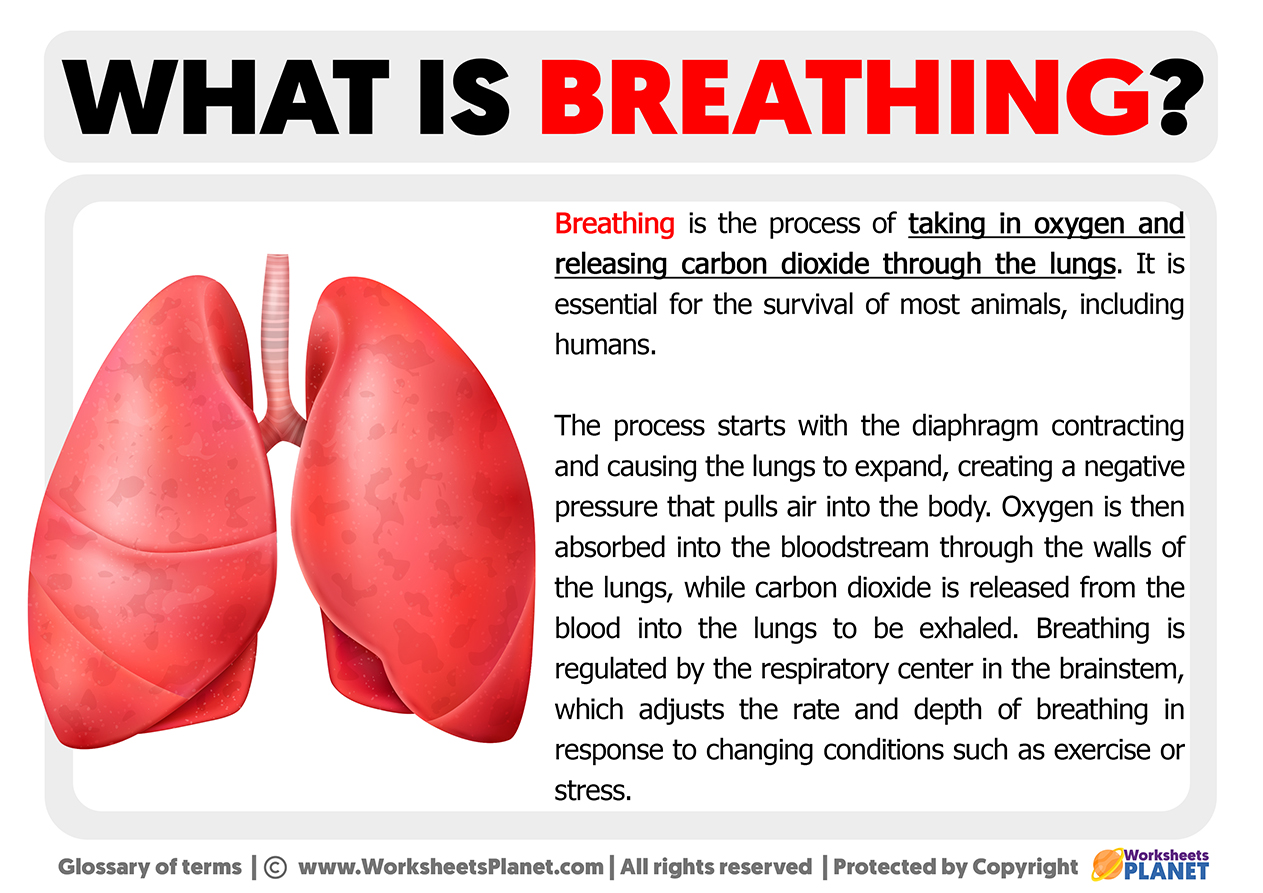Breathing is a vital process that allows us to take oxygen and release carbon dioxide through the lungs. This gas exchange that occurs in our body is essential for the survival of most animals, including humans.

This essential process starts with the diaphragm contracting and causing the lungs to expand, creating a negative pressure that pulls air into the body.
Oxygen is then absorbed into the blood through the walls of the lungs, while carbon dioxide is released from the blood into the lungs to be exhaled.
Breathing is regulated by the respiratory center (located in the medulla oblongata) in the brainstem, which adjusts the rate and depth of breathing in response to changing conditions such as exercise or stress.

